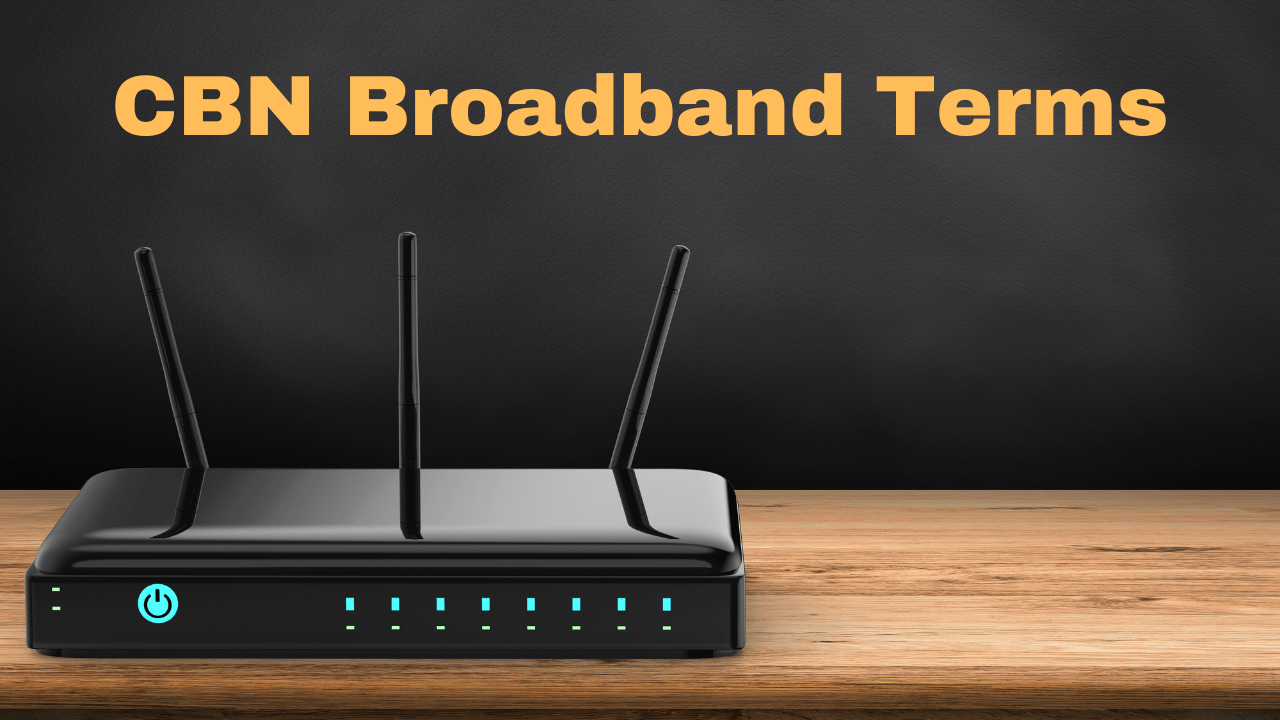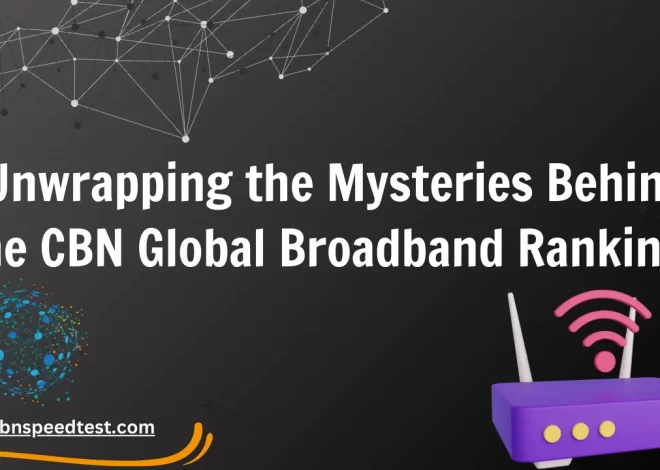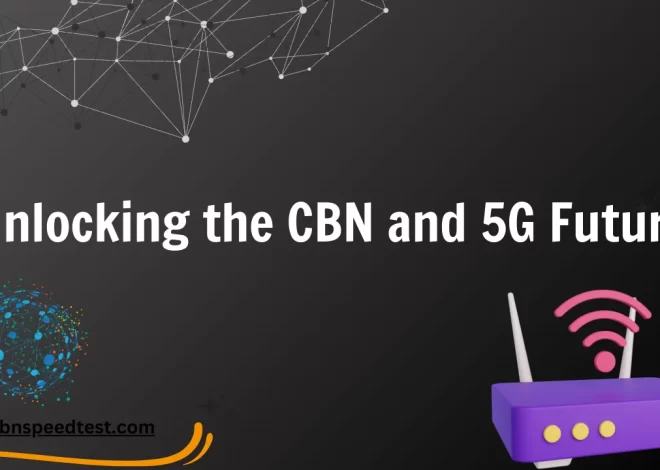
Unlocking CBN Broadband Terms: Know Your Connection Better!
Gone are the days when dial-up connections ruled the internet. Today, broadband has become the norm, offering faster speeds and improved connectivity. But with so many broadband terms and jargon, it can be challenging to navigate this world of internet connectivity. Understanding key terms related to CBN broadband is essential to ensure you make informed decisions when it comes to choosing a broadband service and optimizing your internet experience.
In this section, we will provide a comprehensive guide to some of the essential CBN broadband terms, including what broadband is, the different types of broadband, and why broadband speed matters.
Key Takeaways:
- Understanding CBN broadband terms is crucial for optimizing your internet experience.
- Broadband refers to a high-speed internet connection that allows for faster data transfer rates.
- There are different types of broadband connections, including DSL, cable, fiber-optic, and satellite.
- Broadband speed is the rate at which data is transmitted over a broadband connection and is essential for different online activities.
Understanding Broadband: Definition and Types:
Before delving into the specific details of CBN broadband, it is important to understand the basic concept of broadband and its various types. At its core, broadband refers to a high-speed internet connection that allows for faster data transfer and a more seamless online experience.
There are several types of broadband connections commonly available, each with its own set of advantages and limitations. These include:
| Type of Broadband | Description |
|---|---|
| DSL (Digital Subscriber Line) | Uses existing telephone lines to provide internet access. DSL is widely available but may have slower speeds compared to other types of broadband. |
| Cable | Uses cable television infrastructure to provide internet access. Cable broadband tends to be faster than DSL but may be affected by network congestion during peak hours. |
| Fiber-optic | Uses fiber-optic cables to transmit data, providing the fastest broadband speeds available. However, fiber-optic broadband may not be available in all areas. |
| Satellite | Uses satellite technology to provide internet access in remote or rural areas where wired broadband is not available. Satellite broadband may have slower speeds and be affected by weather conditions. |
When considering the type of broadband to opt for, it is important to take into account factors such as availability, pricing, and expected usage. It is also worth noting that broadband speeds may vary depending on the provider, package, and geographic location.
Broadband is essential for an optimal online experience, allowing users to access high-quality content, stream videos, and quickly download files. With a range of broadband options available, it is important to choose the package that best suits your needs.
Navigating Broadband Speed: What You Need to Know:
Broadband speed is one of the most crucial factors to consider when choosing an internet service provider. It determines how quickly data transfers between your computer and the internet, affecting everything from online browsing and streaming to uploading and downloading files.
The speed of your broadband connection is measured in megabits per second (Mbps). It’s important to note that the speed advertised by your provider may not always match the actual speed you receive. Factors such as the type of connection, network congestion, and distance from the provider can impact your speed.
When selecting a broadband package, it’s essential to choose a speed that fits your online activities. Basic web browsing and email typically require speeds of 1-5 Mbps, while streaming and online gaming may require speeds of 10-25 Mbps or more. Work from home or online classes may require even faster speeds.
| Type of Broadband Connection | Speed Range (Mbps) |
|---|---|
| DSL | 1-15 |
| Cable | 10-500 |
| Fiber-Optic | 100-1000 |
| Satellite | 1-25 |
Beyond selecting the appropriate speed, broadband service providers play an integral role in ensuring a reliable and fast connection. Factors such as network maintenance, customer service, and equipment quality can impact your speed and overall user experience.
It’s important to research and compare providers in your area, reading reviews and checking for hidden fees or restrictions. By doing so, you can select a provider that best fits your needs and budget.
CBN Broadband Plans: Exploring Packages and Coverage:
When it comes to internet connectivity, choosing the right broadband plan is crucial. CBN offers a variety of broadband plans for its users, each with different packages and coverage options. Understanding these plans can help users make informed choices and select the most suitable package based on their individual needs.
The packages offered by CBN include the Starter, Bronze, Silver, Gold, and Platinum plans. The Starter plan is the most basic plan with a data cap of 25GB per month, while the Platinum plan offers unlimited data with the highest speed. The Bronze, Silver, and Gold plans fall in between, with varying data caps and speeds.
| Plan Name | Data Cap | Speed |
|---|---|---|
| Starter | 25GB | up to 5Mbps |
| Bronze | 50GB | up to 10Mbps |
| Silver | 100GB | up to 20Mbps |
| Gold | 200GB | up to 35Mbps |
| Platinum | Unlimited | up to 70Mbps |
It is important to note that the actual speed may vary depending on factors such as network congestion, distance from the source, and the number of users on the network. CBN also offers different coverage options, including urban, suburban, and rural coverage. Users should check their location’s coverage to ensure that they select a plan that is supported in their area.
In addition to the various plans and coverage options, CBN also offers add-ons such as static IP addresses, enterprise solutions, and customized plans. Users with specific needs can contact CBN for more information on these add-ons.
In conclusion, understanding the different broadband plans offered by CBN is essential for users looking to optimize their internet experience. By selecting the most suitable package and coverage option, users can enjoy reliable and fast internet connectivity, tailored to their individual needs.
Embracing Broadband Technology: Advancements and Benefits!
Broadband technology has come a long way since its inception. With advancements in infrastructure and innovation, broadband internet has evolved into an essential component of modern life. Here are some benefits of broadband technology that you should be aware of:
- Faster speeds: Broadband technology provides faster internet speeds than its predecessors, allowing you to stream high-quality videos, download files quickly, and participate in online gaming without any lag.
- Enhanced reliability: Unlike dial-up connections, broadband internet connections are always on and reliable, enabling you to stay connected without unexpected interruptions.
- Improved bandwidth: With broadband technology, you can transfer large amounts of data within seconds, making it ideal for businesses or individuals who need to upload and download large files frequently.
CBN offers various broadband plans that leverage the latest broadband technology, ensuring users experience faster speeds, reliable connections, and improved bandwidth utilization. Whether you are a residential user or a business, CBN has the right broadband plan to meet your needs.
Conclusion:
Understanding the world of CBN broadband can be daunting, but with knowledge of key terms and concepts, users can navigate broadband options with ease. By familiarizing oneself with broadband definition, types of broadband, and broadband speed, users can make informed decisions when it comes to their internet connectivity.
It is also essential to understand the various CBN broadband plans and coverage options available. By exploring the different packages offered by CBN and assessing individual needs and usage requirements, users can choose the most suitable plan.
Moreover, with advancements in broadband technology, users can enjoy faster speeds, enhanced reliability, and improved bandwidth, making the internet experience more seamless and efficient.
In conclusion, taking the time to understand CBN broadband terms and technology can help users embrace the world of broadband with confidence and optimize their internet experience.
FAQ!
What is broadband?
Broadband refers to a high-speed internet connection that is always on and allows for faster data transmission compared to traditional dial-up connections. It provides a wide bandwidth that enables multiple devices to be connected simultaneously and supports various online activities such as streaming, downloading, and browsing.
What are the different types of broadband connections?
There are several types of broadband connections, including DSL (Digital Subscriber Line), cable, fiber-optic, and satellite. DSL uses telephone lines to transmit data, cable utilizes coaxial cables, fiber-optic uses thin strands of glass or plastic to transmit data using light, and satellite uses signals from satellites orbiting Earth to provide internet access.
Why is broadband speed important?
Broadband speed is crucial as it determines how quickly data can be uploaded or downloaded. Faster speeds allow for seamless streaming, faster downloads, smoother online gaming, and efficient browsing. The appropriate speed depends on the online activities performed and the number of devices connected to the internet simultaneously.
How is broadband speed measured?
Broadband speed is typically measured in Mbps (megabits per second). It indicates the amount of data that can be transmitted per second. The higher the Mbps, the faster the internet connection. Internet service providers often advertise the maximum download and upload speeds available to customers.
What factors can affect broadband speed?
Several factors can impact broadband speed, including the distance from the internet service provider’s infrastructure, network congestion, the type of broadband connection, the quality of the modem or router used, and the number of devices connected to the network simultaneously. It’s essential to consider these factors when assessing and optimizing broadband speed.
How do I choose the right broadband package?
When selecting a broadband package, consider your needs and usage requirements. Determine the internet speed required for your online activities and the number of devices that will be connected. Evaluate the coverage provided by the broadband service provider in your area and compare different packages based on cost, customer reviews, and additional features such as unlimited data or technical support.
What are the benefits of broadband technology?
Broadband technology offers numerous advantages, including faster speeds, improved reliability, and enhanced bandwidth. It allows for seamless streaming of media content, faster downloads, smoother online gaming experiences, and efficient browsing. Broadband technology also enables the use of various connected devices, such as smart TVs, smartphones, and smart home devices, enhancing the overall internet experience.


